In this intimate conversation, Lillie, a sexologist and intimacy coach, shares her journey of weaving pleasure into every aspect of life. From embracing her ADHD and neurodivergence to exploring the depths of eroticism beyond the bedroom, she challenges conventional ideas about intimacy, connection, and self-expression. Lillie shows us that pleasure is an essential everyday practice that nourishes our mind, body, and connections
She opens up about how sensory awareness, creative expression, and even cannabis can enhance sexual experiences while also emphasising that micromoments of everyday pleasure are just as vital. Lillie’s ethos is clear: by prioritising pleasure, we reclaim our bodies, our desires, and ultimately, our humanity.
We set out to trace the turning points that led her to embrace pleasure as a lifestyle, navigate neurodivergence, and redefine what intimacy, connection, and self-expression can truly mean.

Bringing Pleasure Into Everyday Life
Your idea of ‘holistic hedonism’ links pleasure with overall well-being. When did you first start intentionally weaving pleasure into your everyday life, not just in the bedroom? Can you share a personal moment that sparked this shift?
Lillie: Growing up, I only wanted to do things that felt good or tickled my brain in the perfect way. Even from my young teenage years, I’d look around in the world and be shocked and horrified at how the majority of people were living their lives. Numb, checked out, addicted to the grind, and going through the motions. I’ve always been quite existential, but it definitely ramped up around this age as I started to observe the reality of the world around me. I didn’t want to resign myself to a life of pushing through, enduring, and tolerating. I wanted to live a life dripping with pleasure and presence. All around me, I was told, “Well, that’s just not how the world works.” These words didn’t placate me; in fact, they drove me further towards pleasure.
An ADHD diagnosis in my mid-twenties made all of this make more sense. My obsession with making life feel good wasn’t laziness; it was my brain insisting on building a way of living that actually works for me.
My ethos in my personal life and the approach I bring to my professional life is to make eroticism a lifestyle. And no, this doesn’t mean you have to be banging 24/7. Eroticism is so much more than sex—it’s aliveness, vitality, and a lust for life. And to be erotic, we need to be present and embodied. The more presence, embodiment, and pleasure we can weave into our lives, the more fulfilling they will be. Most of us are living deeply unsexy lives—stressed, overburdened, chasing endless productivity.
That kind of life strips us bare, leaving little space for sexual fulfilment, ecstatic pleasure, or deep connection. If we want richer intimacy inside the bedroom, we have to nurture our capacity for presence and pleasure outside of it.

ADHD and Sexuality
You’ve been open about your own experience with ADHD. How does neurodivergence impact sexuality, intimacy, and relationships? Are there specific challenges or unexpected strengths that come with this experience?
Lillie: When I received an ADHD diagnosis in my mid-twenties, so many things about me and my experiences just made sense. And sex wasn’t unaffected. I realised that certain things I’ve struggled with—for example, the texture of certain bodily fluids—aren’t a failing; they’re actually just a sensory sensitivity because my brain processes information and sensation differently.
The challenges are real: being distractible during sex, “forgetting” about sex if it’s not at the front of mind, struggling to switch off, or being more impulsive. Many neurodivergent folks also wrestle with unwinding enough to build arousal, which makes desire feel elusive. Research shows that ADHD and autistic people often take more risks sexually and report lower relationship satisfaction, so understanding your wiring is crucial. That way, you can build skills where needed—communication, emotional regulation, grounding, and being present.
And yet, there are delicious strengths. Hyperfocus during sex can lead to total immersion. Hypersensitivity to touch when it works in your favour—can heighten pleasure. Neurodivergent people are often more explorative and more curious, and it’s no coincidence that kink and BDSM communities are full of us. The ADHD/kink/BDSM Venn diagram is real!
Learning about your own sexual blueprint is essential as a neurodivergent person; it’s the map to the best sex of your life.
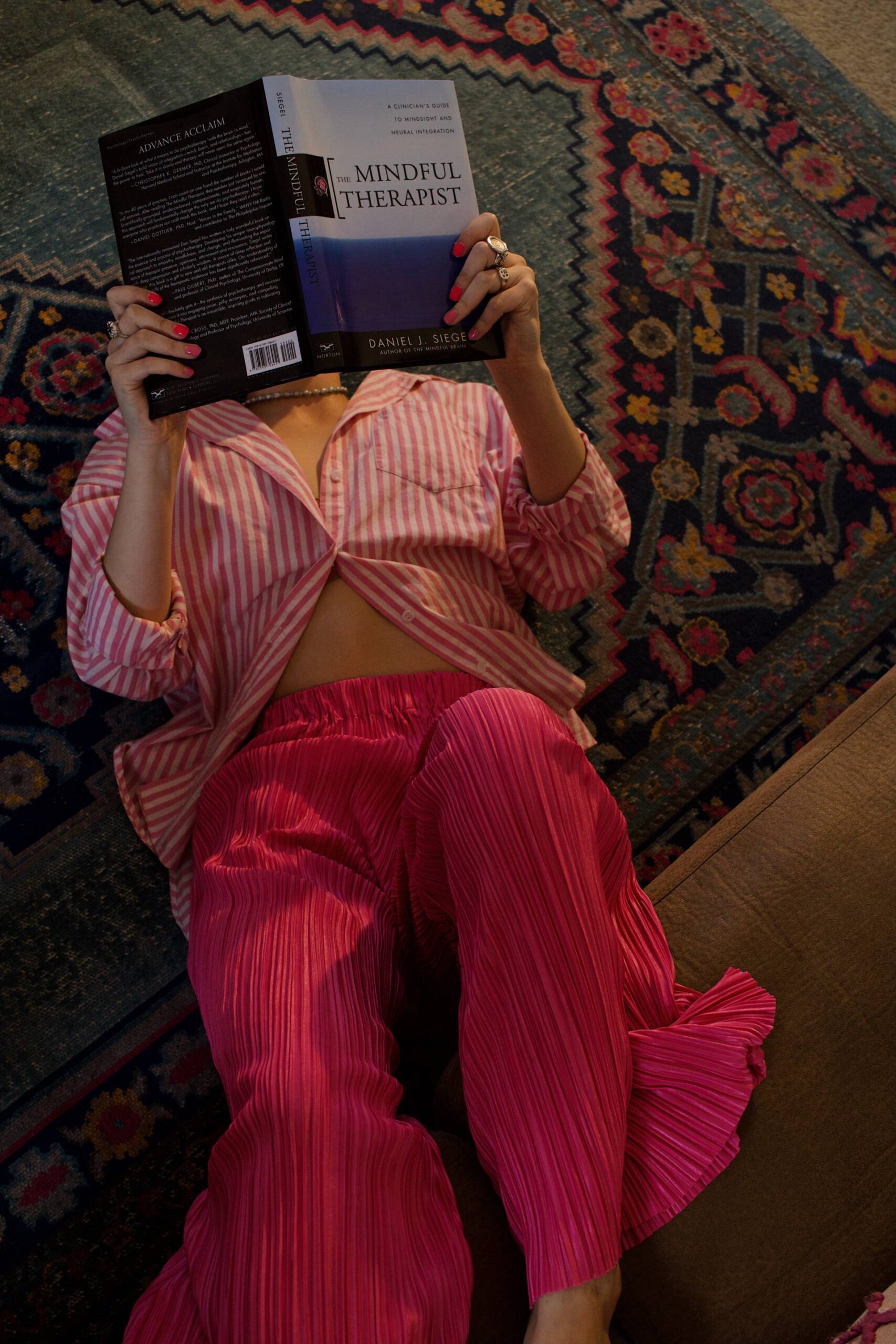
Connection Beyond Sex:
Intimacy isn’t always physical. How do you guide clients to build emotional and sensual connections that deepen relationships outside of sexual encounters?
Lillie: I always tell my clients: the depth of intimacy outside the bedroom shapes the depth of intimacy within it. As renowned sex therapist Esther Perel says, “foreplay begins at the end of the previous orgasm. It’s the energy that runs through the entire relationship.” When I’m working with clients in session, I always begin by supporting them to bring micro moments of pleasure and connection into their routine. Sharing a six-second kiss with their partner. Washing each other’s hair. Screen-free meals. And this starts at an individual level too. Slowly moisturize your body rather than slapping it on. Feel the warmth of the mug when you have your morning coffee, and take in the rich aroma.
It seems simple, but these small shifts reorient us to pleasure and presence and contribute to this broader lifestyle change of making eroticism a lifestyle.
Presence is the currency of emotional intimacy. Most of us are so fucking distracted, always looking down at our phones and thinking of tomorrow’s to-do list and everything that is to come, rather than what’s happening here in this moment. And it robs us of pleasure and connection. Put your phone down. Actually, look your partner in the eye. Pay attention when they tell you about your day, even if it feels like the same old story. Our attention is our most precious resource, yet seldom do we properly invest it in our relationships.
You cannot coast through life numb, distracted, and completely in your head, then expect to experience incredible sex in the bedroom. It just doesn’t work like that. The skills of presence, attention, and connection need to be practiced in daily life so they can translate into eroticism.
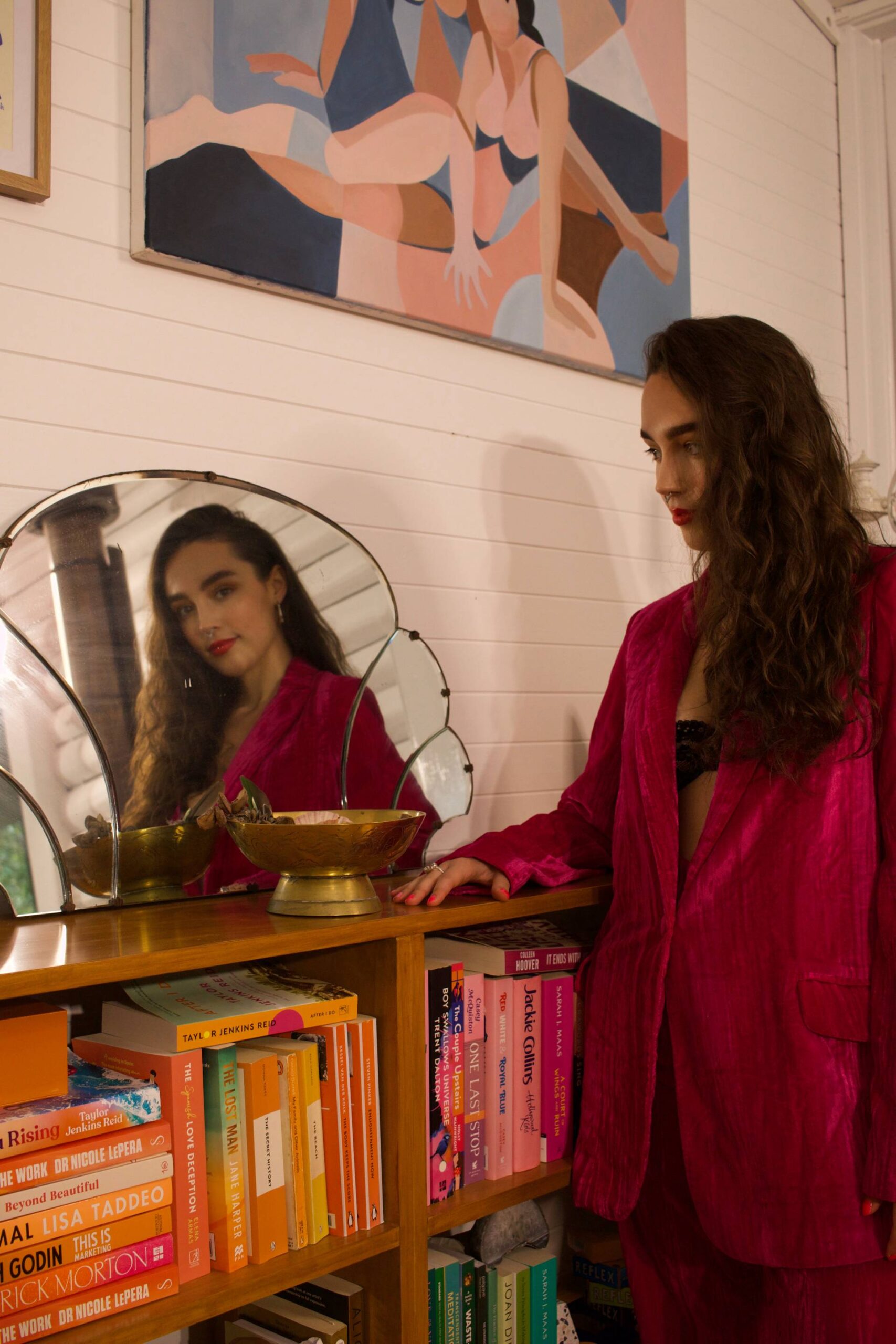
If You Could Begin Again: One Book, Podcast, or Tool to Change Everything:
You’ve curated a lot of educational content over the years. If you had to recommend just one book, podcast, or resource for someone beginning their journey of sexual empowerment, what would it be and why?
Lillie: Slow Pleasure by Euphemia Russell. This is a book that I come back to again and again. It’s practical, accessible, and places slowness at the centre of cultivating pleasure. In a world obsessed with speed, this book teaches us to honour slowness as the doorway to connection.
It reminds us that pleasure isn’t reserved for sex; it’s available in every moment.

Intersection of Identity & Pleasure:
As a proud member of the LGBTIQA+ community and someone who identifies as neurodivergent, how have these identities shaped your approach to intimacy, and what misconceptions would you like to break for others in similar spaces?
Lillie: Being queer and neurodivergent has shaped me into someone hyperaware of belonging—or the lack of it. I know what it feels like to not have your needs considered, to feel like you don’t fit. So my work is about creating spaces where people don’t need to mask or perform, where they feel held and safe to be seen as their full selves.
Queer theory and neurodivergent paradigms underpin everything I do. Both remind us that our humanness deserves to be honoured, that pleasure and embodiment aren’t privileges—they’re rights.
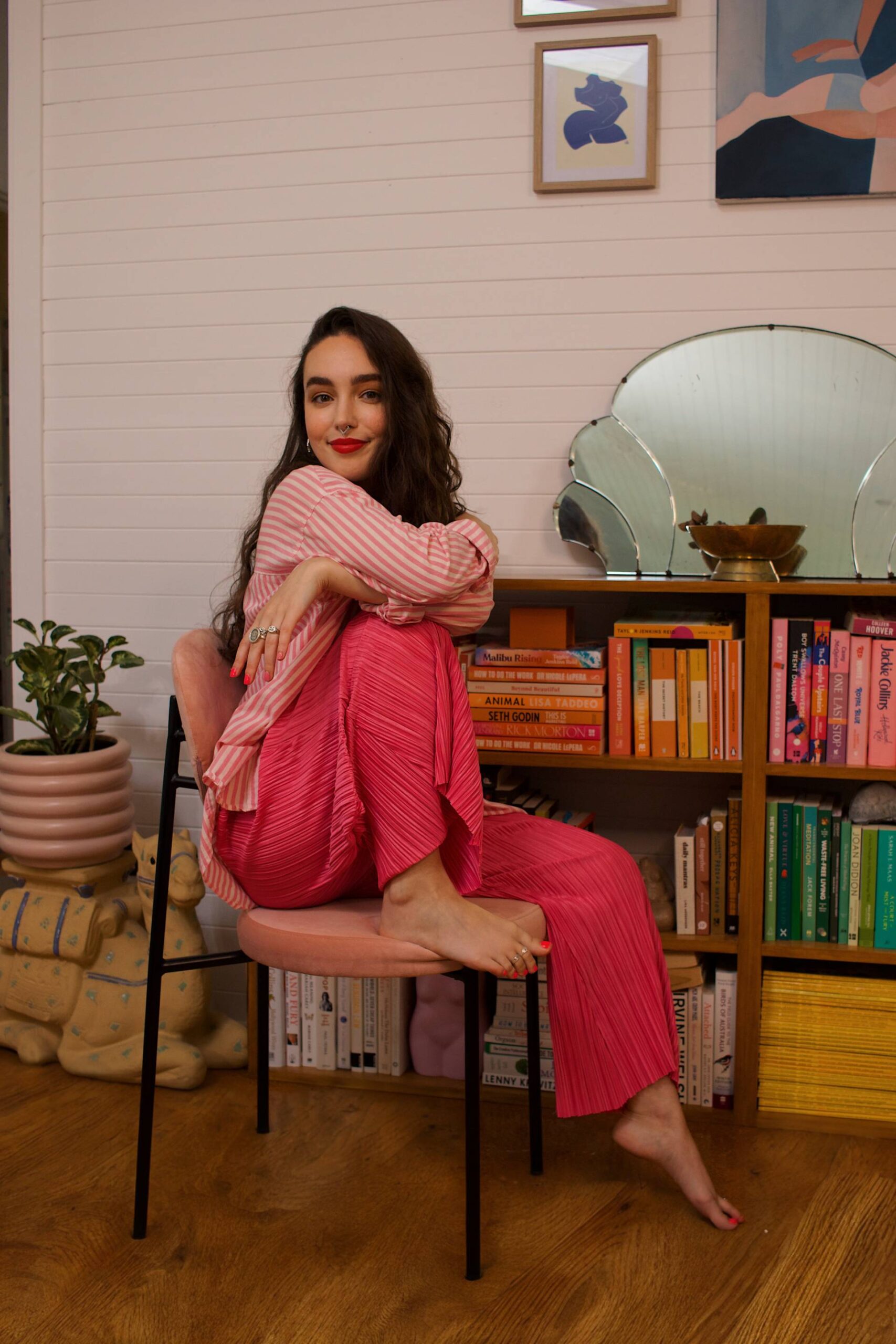
Creative Expression & Eroticism:
Your art explores themes of sensuality, femininity, and societal expectations. How has your creative practice influenced your understanding of sexuality, and do you see art as a form of erotic empowerment?
Lillie: My creative practice is deeply woven into who I am and really informs the lens through which I see the world. I certainly think art can be a form of erotic empowerment, but it’s also broader than that. Sex is art. The melting of bodies, energies, touch, breath, and shared pleasure. If art is the act of expression and creation, I can think of nothing more artistic than the act of sex. Sexual energy and creative energy are one and the same; they’re our life force. And when both of these areas are tended to and nurtured—rather than succumbing to our crisis of pace, and letting disconnection reign supreme—we are pretty fucking unstoppable. They energise us and feed us, and they make life rich and meaningful, rather than feeling like it’s passing us by.
A lot of my work is very tactile and influenced by sensory details that live rent-free in my head. There’s an inherent sensuality in making something with your hands and bringing
your vision to life. Making the intangible tangible. I think that’s why I’ve always been drawn to embroidery and beading, and collage. It’s sensual, it’s textured, it’s alive.
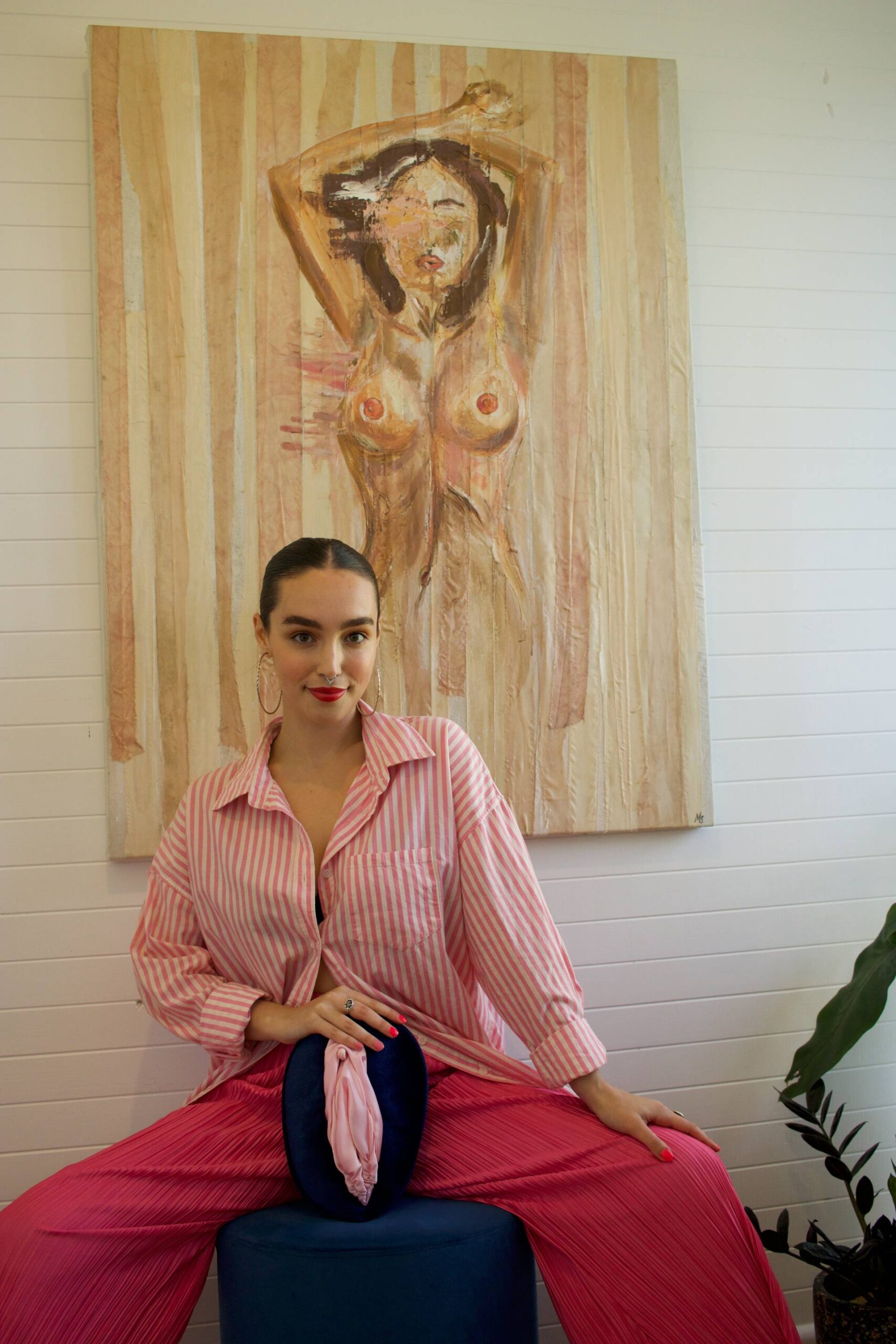
Cannabis and Sexual Exploration
Cannabis is an unconventional yet increasingly discussed tool for enhancing sexual experiences. How can cannabis be used to support sexual pleasure, particularly for people experiencing conditions like vaginismus or vulvodynia?
Lillie: Research is finally catching up to what vulva-owners have been saying for decades: intentional cannabis use before sex can be an incredible aphrodisiac. Cannabinoids reduce inflammation and relax the muscles, offering a pain-relieving effect that can ease unwanted sexual pain related to vaginismus, vulvodynia, endometriosis, pelvic floor tension, and more. A CBD-infused lube is a great option here—think less friction, more pleasure.
The right dose can increase desire, intensify and prolong orgasm, and enhance sensory pleasure. It can also ease mood- and body-based barriers that slam the brakes on desire, like anxiety, pain, and tension. Personally, I use cannabis to relieve insomnia and endometriosis pain and to enhance my pleasure experiences. It makes me more sensory focused, relaxed, and present in my body. And let me tell you, the orgasms have been genuinely mind-melting.
There’s also growing evidence that cannabis can help manage menopause symptoms like hot flashes, insomnia, night sweats, and vaginal dryness factors that often contribute to low libido if left untreated. So cannabis can be an incredible ally for women navigating perimenopause and menopause.
If you’re curious, consult your healthcare team to ensure it’s right for you. And if it is, start with a low dose and go slow.
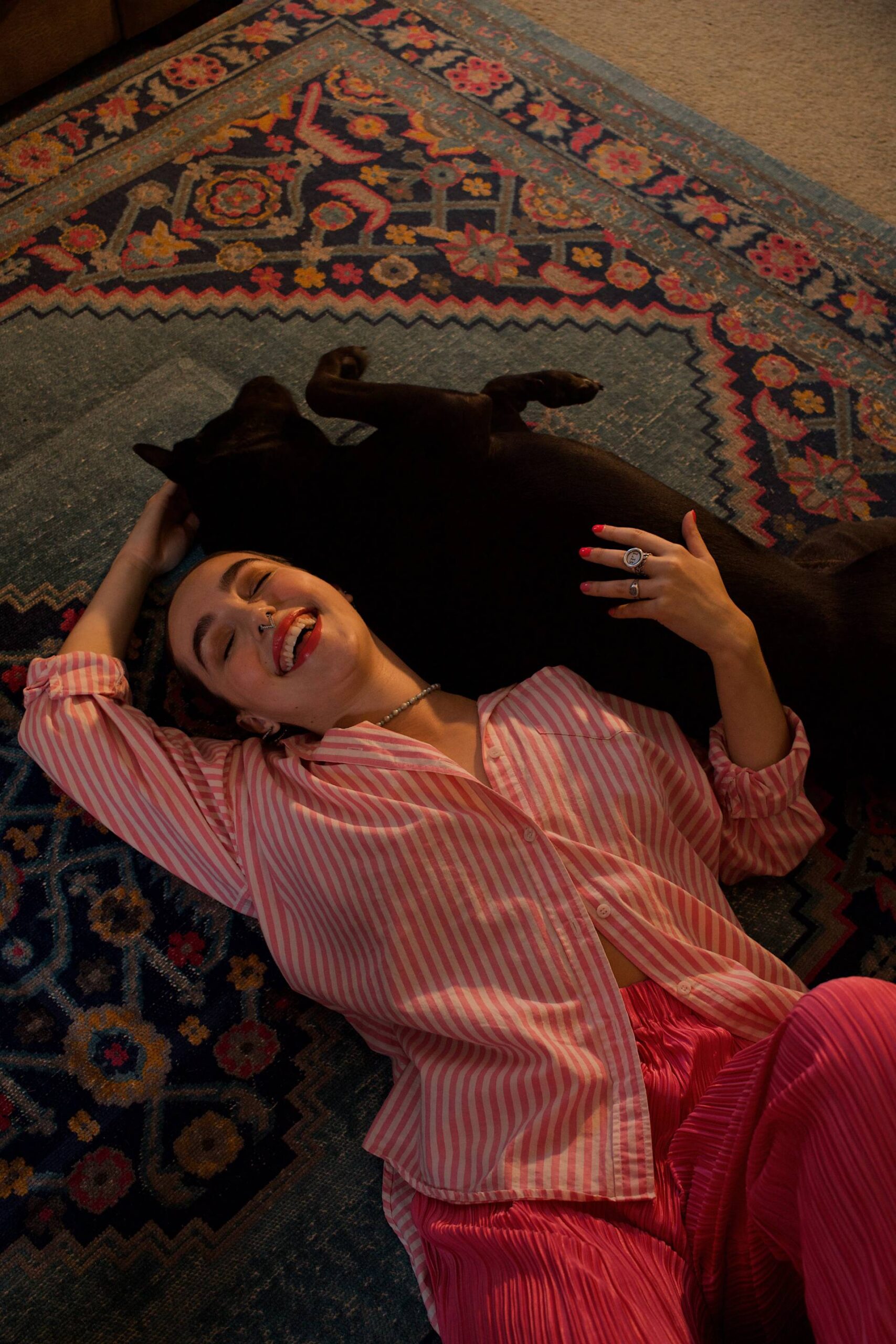
Legacy & The Pleasure Revolution
Finally, if you could leave our readers with one message about living a fully expressed, pleasure-orientated life, what would it be and why does it matter now more than ever?
Lillie: The world is saturated in pain, horror, and disconnection, and it’s pretty human to feel paralysed by this. Pleasure is the antidote. The counterforce. It’s the medicine for stress, the balm for overwhelm. It’s the antidote to stress. Spend 15-20 minutes each day doing something for pleasure (it doesn’t have to be sexual) and notice how it makes you feel. Pleasure floods your body with a cocktail of happy hormones and neurotransmitters and replenishes us.
When we prioritise pleasure, we become softer, more compassionate, and more generous with others. Pleasure is not indulgence; it’s a resource. It’s resilience. It’s a way back to our humanness. When we weave it into our daily lives and embrace eroticism as a way of being, the return is immeasurable: a fuller, richer life and a gentler, kinder world. The ripple effects of pleasure are profound—never underestimate them.

Editor’s Note:
Lillie leaves us with more than her story; she leaves us with a challenge. To stop numbing ourselves with distraction and instead choose aliveness. To see eroticism not as a bedroom act, but as a way of living that nourishes every part of us. Pleasure isn’t indulgence; it’s the resource that makes us softer, more resilient, and more human. The lesson is simple yet radical: when we weave pleasure into our days, we create not just richer intimacy but a richer life.
“Pleasure is not indulgence; it’s a resource. It’s resilience. It’s a way back to our humanness.”

